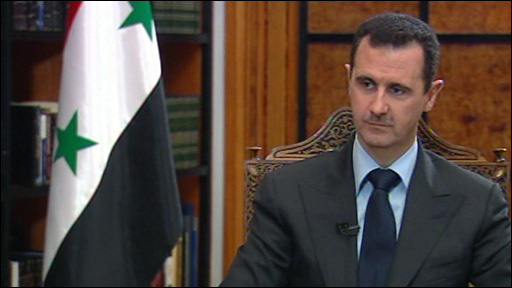Formation of a Syrian Taif, West’s Priority in Syria after US Election

- Regional and international players, who oppose Bashar Assad’s government, will not take a strong stance with regard to the political future of this country.
- Any decision to be made regarding the political future of Syria is postponed until after the US election, when one of the candidates, Mitt Romney or Barack Obama, will have been elected and negotiations for a big deal between the US and the West, on one side, and China and Russia, on the other, will start.
- About two years of creating tension and conflict and civil war has proven that changing the Bashar Assad government is impossible; hence, the US and its allies seek to interact with the allies of the Syrian government to provide their lost interests in this country.
- Among the US and its allies' options with regard to Syria's future, is the creation of a Syrian Taif comprised of all Syrian groups and tribes to govern the country. This Syrian Taif will first be run under the present regime, meaning the government of Bashar Assad, until later when the grounds for holding elections will be prepared; just like the experience in Lebanon.
- The selection of Lakhdar Brahimi, the special envoy of the UN and the Arab League to Syria, and also his negotiations with regional and international players with regard to the developments in Syria and the positions which have, hitherto, been proposed all show that what is wanted is for a Syrian Taif to be formed in any way possible in order to establish a new government.
- Continuing negotiations between the regional war triangle in Syria, i.e. Saudi Arabia, Qatar, and Turkey, and different Syrian groups are also along the same line so that, in the future, with the formation of a Syrian Taif, any of these countries could collect more cards of concession in Syria through establishing stronger relations with different groups.
- Support for a more inflamed war in Syria, by the afore-mentioned countries and also the US and its allies, is also aimed at creating fear and tightening the atmosphere and limiting the power of choice for the present Syrian government and its allies so that they would succumb to the plan for a Syrian Taif.
- There are serious obstacles in the way of achieving this goal. One of them is the major difference between the political and social structure of Syria and that of Lebanon. It means that if, at one time, western countries and Arab states of the region were easily able to form the Lebanese Taif, through which Amine Gemayel was chosen as the president of this country, today such an easy path does not exist in Syria.
- Contrary to Lebanon, the Syrian army is not an army which can be easily separated from the government. Since the time of the government of Hafez Assad, the army in Syria has been transformed, by nature, from a national army into an ideological army and this army has repeatedly proven its loyalty to the central government. Although it is possible that, every once in a while, several officers and generals of the army might join the opposition, the entire army will never collapse, as what happened to the Lebanese army.
- It also seems impossible that the allies of the Syrian government, i.e. the Islamic Republic of Iran, China and Russia, approve the formation of a Syrian Taif, for they are well aware of the future of this Taif and know that this Taif will prepare the grounds for the establishment of a US-Israeli government, hence breaking the back of the resistance.
- During recent days, Mr. Ban Ki-Moon, the UN Secretary General, has requested the government of Bashar Assad to unilaterally enforce a cease-fire. Bashar Assad responded to this request, stating that the condition for the enforcement of a cease-fire is the guarantee that regional and international players would stop their support for the opposition.
- Therefore, a cease-fire in Syria will be established when both sides accept it and sit behind the negotiation table to talk and remove misunderstandings, and prepare the grounds for national reconciliation and holding parliamentary elections and, ultimately, the presidential election. Consequently, requesting a unilateral cease-fire is an irrational and impossible matter.

